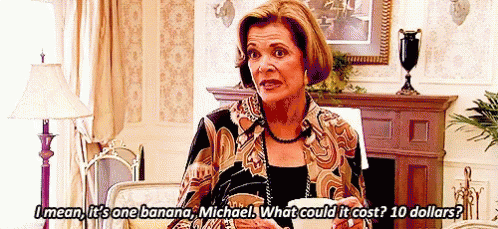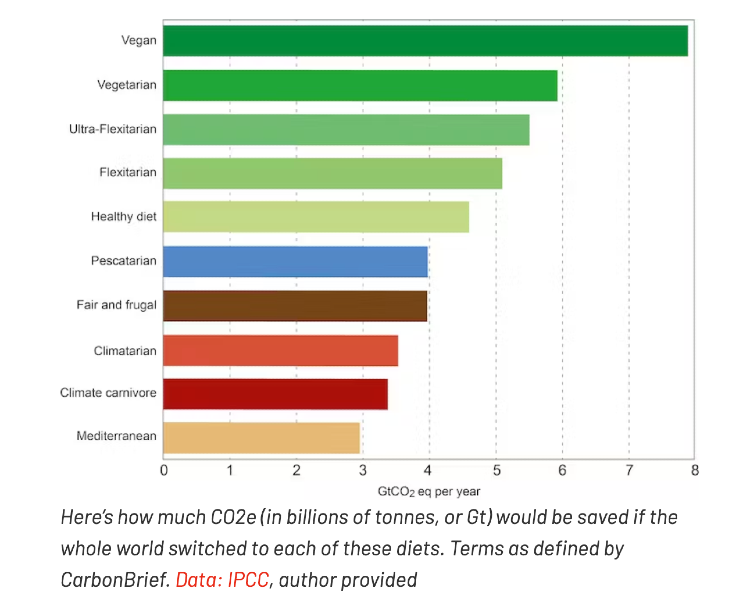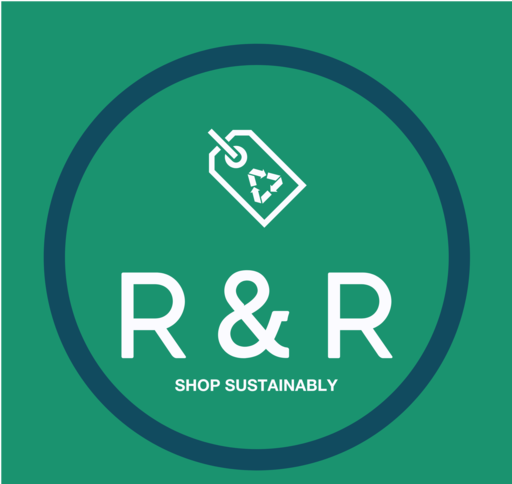Habit vs Impact
I was talking to a friend recently about sustainability and climate action. She told me she cuts her sponges in half, primarily to save money but also to help the environment. This got me thinking about the importance of habit in relation to impact. Does cutting a sponge in half actually help the environment? And how?
In the grand scheme of things, a lot of the small choices that we make as individuals have miniscule environmental consequences on their own. Skipping meat for just one meal, or cutting a single sponge in half saves what, 10 kgs?

Turn those small choices into a verifiable habit, though, and you're talking real savings. Especially if you can get friends or family to do it with you.

Now, here's where it gets tricky. Even though we know the effect would be massive if everyone in the world went vegetarian, we know everyone in the world is probably not going vegetarian. So then we go back to thinking, well what about if only I make the change? Then we look at the numbers.
For the record, going vegetarian reduces the average person's emissions by 4.3% or roughly 1,200 pounds of carbon dioxide (yes, pounds, like on a scale) (usatoday.com). So then maybe we think "well, 4.3% isn't that much; I don't want to give up meat just for that." So we give up on doing Meatless Mondays and we're back where we started.
This is underestimating a few key factors though.
- The importance of considered decisions. Nobody is forcing us to give up meat (or driving a truck or Christmas presents or full sponges). We are choosing, as responsible humans on the planet, to consider what is actually important to us. Where can we trim the fat a bit? What is that default behavior that we don't remember setting? We all have days when someone asks what we want for dinner, and we say we don't care. If we don't care, why not vegetarian? Beware Reactance and embrace conscious choice.
- The effect of simple actions on our psychology. Even if small choices don't have a big impact on the world, they can have a big impact on us. First we start with a small, easy choice - maybe Meatless Mondays, or maybe just one meatless meal a week. Then we start to notice other things in our lives - leaving the lights on, separating the recycling, cutting the sponges in half - and before we know it, we are considering the planet in all our choices. It becomes our new default (psychologytoday.com).
- Collective influence. John Donne once wrote: 'No man is an island' (allpoetry.com). When we make choices, our friends and family take notice, maybe our coworkers too. If we start to consider the climate and environment in our choices, it normalizes that for others. Also, there is no reason you have to be militant about it. A passing "eating less meat, climate you know" goes a long way. Reactance can happen in other people too.
- Contextualizing mistakes. When starting our climate journey, sometimes it can feel like everything we do is wrong. We drive the wrong car, eat the wrong things, buy the wrong things, the world is dying, despair despair! No wonder we back out and away. No one wants to live in despair. Taking small simple action is actually a blessing. So you had a steak. That's ok. Having one steak doesn't define you, and it didn't burn down the whole Amazon. Start again tomorrow. The habit matters more than the single instance. The ability to restart after mistakes is pretty important.
- Participation in demand. In a capitalist world, the consumer is king. We get to decide what we buy, and businesses adapt over time. When you see Impossible burger next to beef in the meat section of the grocery store and you say 'what the heck' and choose Impossible, the grocery store manager notices. He places an order for more Impossible. Over the next couple months, the Impossible section at the store becomes bigger and the items cheaper, and more people buy it. The grocery store manager decides to stock less beef since its getting chosen less, and reduces their order by 25%. After a few months, the beef supplier notices and decides to ranch 25% less cattle. This requires 25% less land. Meanwhile, the rival grocery store has noticed that people who buy Impossible are going elsewhere and they start stocking it too. This is a simplified example, but not by too much. Our choices can have a ripple effect.
My point with all this is just that: it matters. It all matters. If you can't go vegetarian, thats ok. Try Meatless Mondays. Meatless Mondays too much? Thats ok, just one less meat meal. Or maybe have chicken instead of beef. Do what you can with what you've got. Just keep trying to improve and do better.
Now there are some things that objectively have more impact (sometimes much more impact) than others, and if you want to do things in priority order, see the Climate Action Hierarchy. But know that if you're really honest-to-Goddess trying, its worth it. It's all about finding that sustainable balance.
And if you're still curious about the sponges, here you go. Basically, get compostable ones and yea, cut them in half.

